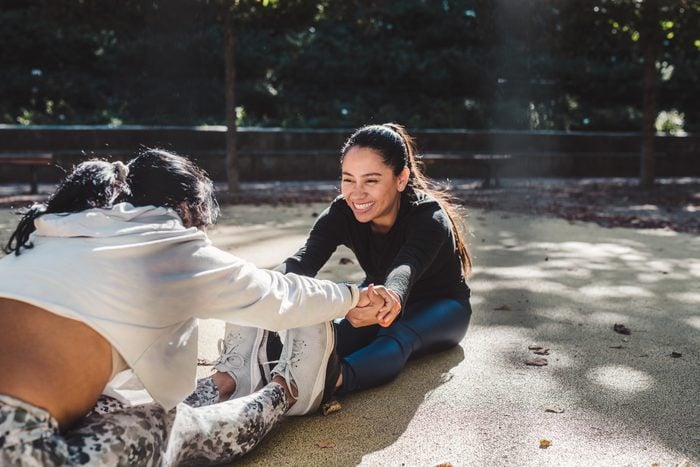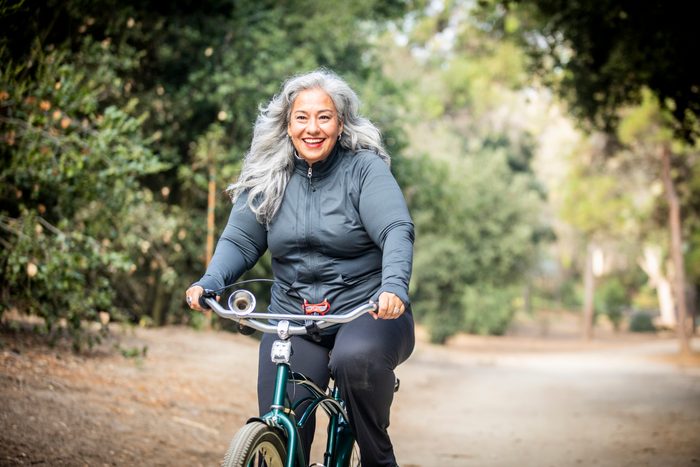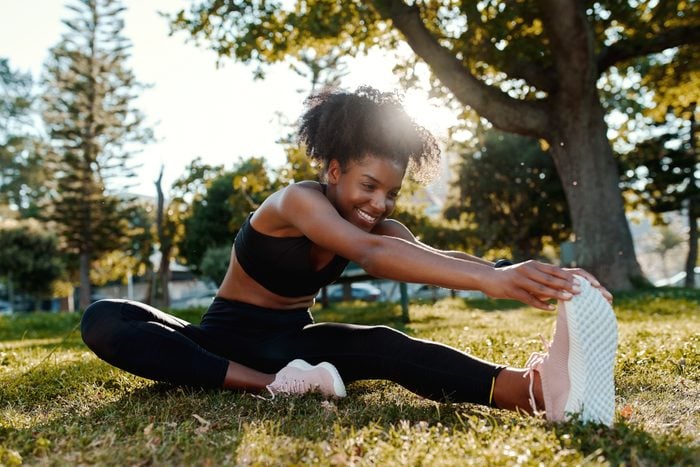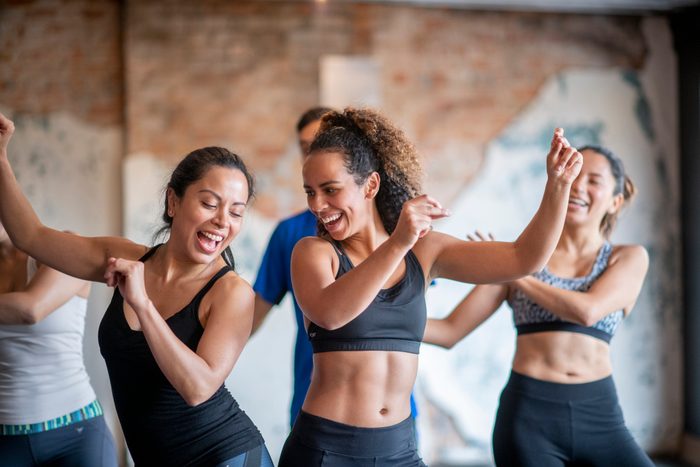
If you’ve ever gotten into a fitness routine, you’ve probably experienced that exercise is good for your mental health. There’s plenty of research to support your observation: “Virtually any form of exercise, from aerobics to yoga, can act as a stress reliever,” says the Mayo Clinic‘s blog. But when you’re feeling down or stressed from being too busy—the times when we need that energetic uplift the most!—exercise can tumble to the bottom of the priority list.
Michael McNeil, associate vice president, administration & chief of staff at Columbia Health cites evidence: “In one Columbia University pilot study, regardless of academic area or even level of enrollment [undergraduate or graduate], students in the pilot study identified physical activity as one of the top two sources of coping.”
Errick McAdams, CPT, a Washington D.C.-based personal trainer, says the emotional benefits of exercise take just moments to arrive. “Dopamine kicks in after about 10 minutes of walking,” McAdams says. “At that point, you’ll likely get enough of an energy boost to start running.”
The effect of fitness on mental health is personal to McAdams. In 2001, he was out of work and overweight. He found his way to the gym, lost 40 pounds in three months and became a trainer certified and insured by the American Council on Exercise. Today, McAdams usually starts working out with clients at 5:00 a.m., including weekends. Whether he’s training in-person or on-screen, he’s full of get-you-moving mottos like “hydrate before you caffeinate” and “anything beats the couch.”
Here, McAdams shares with The Healthy @Reader’s Digest what he thinks are the top five ways exercise can improve mental health.

Exercise raises endorphins
When you exercise, your body naturally boosts endorphins, known as “feel good hormones.” (It’s what people are referring to when they talk about a “runner’s high.”) As a bonus, Harvard Health‘s blog says endorphins are a natural painkiller, which is why even when you start out tired or a little stiff, you start to feel good after the first 10 minutes of activity. The release of endorphins often motivates you to keep going.
“If you only work out when you feel good, you won’t,” McAdams says. What will make you feel better—and is scientifically proven to do so—is to get up and get moving.

Exercise gives you energy
The more you exercise, the more energy you’ll have—not only for fitness, but for all aspects of life. When you exercise, your body experiences cellular changes and creates more mitochondria, which Harvard Medical School‘s blog says “create fuel out of glucose from the food you eat and oxygen from the air you breathe.”
McAdams often talks about “making gains,” but he also acknowledges that “not every day in the gym has to be beast mode.” If your schedule only allows for you to take three 10-minute walks in a day, you’ll have made gains for your physical and mental health.
January Health Challenge: 31 Inspiring Wellness Goals for a Healthy Year

Exercise boosts confidence
McAdams has trained clients for 20 years, and he’s seen enough to draw some conclusions. “People often come to a trainer because they’re in a lull,” he says. “It’s much deeper than fitting into certain size pants.”
So when you think you can’t run a mile, but then you do, your confidence builds. You then carry that encouraged feeling, McAdams says, away from your workout and into your personal and professional life. There’s a reason some of the world’s most successful motivational figures also happen to be in excellent physical shape. “Confidence in one area becomes confidence in every area,” he says.

Exercise improves your overall mindset
Waiching Wong is one of McAdams’ clients. She has two young kids and a demanding job as an urban planner specializing in transit technology. Wong has to prioritize working out—and she does, usually at 6:00 a.m. “It gives my brain the rare opportunity to reset from everything else,” Wong says. “In the gym, I can zone out and focus on my body, the movements.”
McAdams says it doesn’t matter what time of day you work out, but morning can be ideal for people whose days turn demanding. “It’s like, no matter what else happens in the day, at the very least, I was good to myself and invested in my future health by getting in the exercise,” Wong says. She adds that “the upside of endorphins … makes the rest of the day easier to handle.”
How to Exercise After Covid-19: Lung Doctors Share Current Wisdom

Increases blood flow
Authors of a 2012 Sports Medicine study emphasized a fundamental rule of physiological wellbeing: “Constant cerebral blood flow (CBF) is vital to human survival.”
Basically, what they meant is that healthy blood flow in the brain is going to help pretty much everything. “If you get more blood flowing, it’s going to help all areas of your body—but especially your brain,” McAdams says. Both cognitively and emotionally, when your brain is oxygenated and functioning optimally, you’ll feel sharper, more alert, and happier.
If you’re not exercising regularly, there’s no reason not to give it a shot and see which areas of your life will improve. McAdams almost guarantees you’ll see a boost in all aspects of your life, and he can’t stress enough that you don’t need fancy outfits or expensive equipment. “Go walk around the block, do jumping jacks, park at the far end of the parking lot—because it all adds up.”
